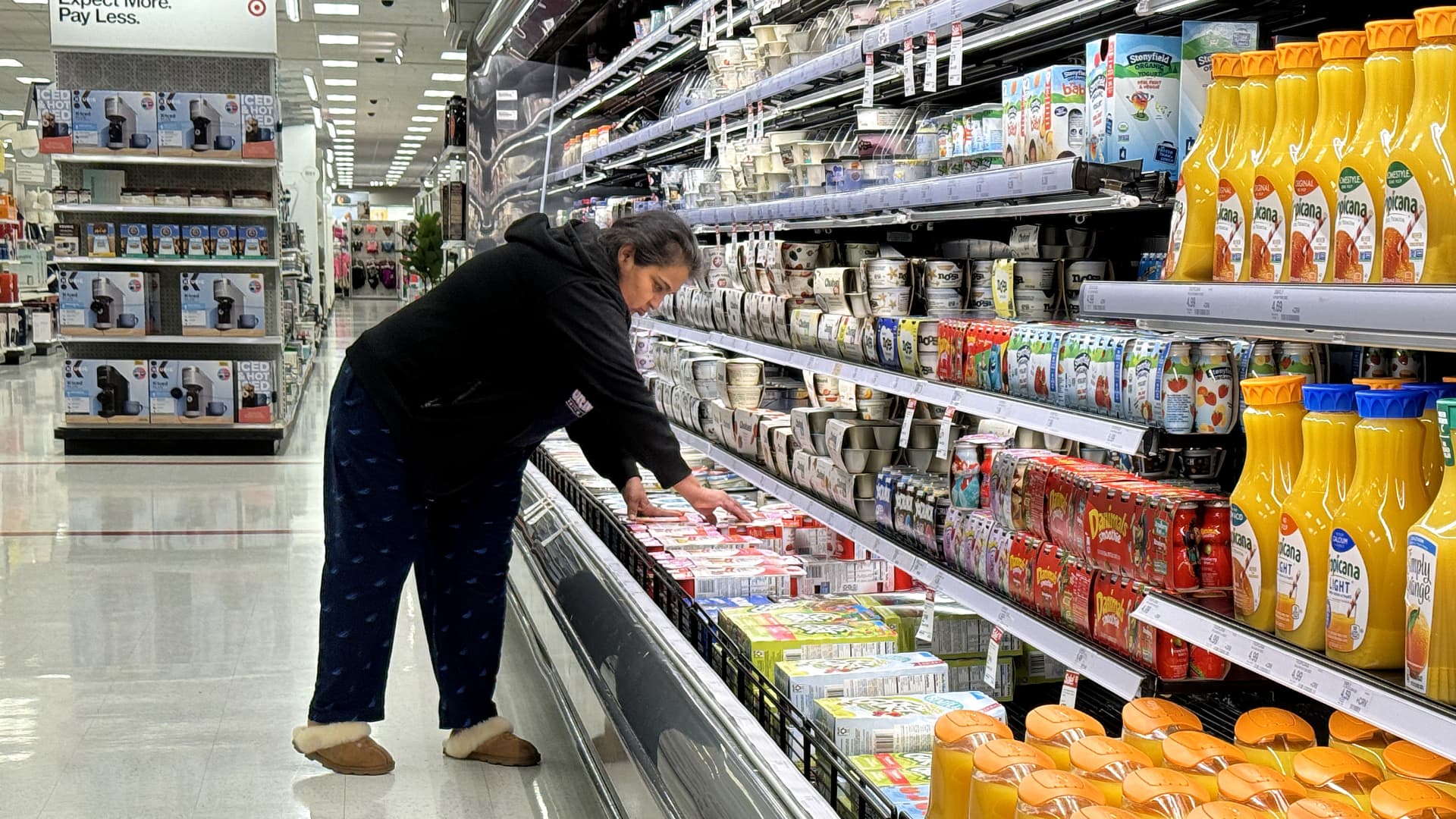Inflation showed few signs of letting up in March, with a key barometer the Federal Reserve watches closely showing that price pressures remain elevated.
The personal consumption expenditures price index excluding food and energy increased 2.8% from a year ago in March, the same as in February, the Commerce Department reported Friday. That was above the 2.7% estimate from the Dow Jones consensus.
Including food and energy, the all-items PCE price gauge increased 2.7%, compared with the 2.6% estimate.
On a monthly basis, both measures increased 0.3%, as expected and equaling the increase from February.
Markets showed little reaction to the data, with Wall Street poised to open higher. Treasury yields fell, with the benchmark 10-year note at 4.67%, down about 0.4 percentage points on the session. Futures traders grew slightly more optimistic about two potential rate cuts this year, raising the probability to 44%, according to the CME Group’s FedWatch gauge.
“Inflation reports released this morning were not as a hot as feared, but investors should not get overly anchored to the idea that inflation has been completely cured and the Fed will be cutting interest rates in the near-term,” said George Mateyo, chief investment officer at Key Wealth. “The prospects of rate cuts remain, but they are not assured, and the Fed will likely need weakness in the labor market before they have the confidence to cut.”
Consumers showed that they are still spending despite the elevated price levels. Personal spending rose 0.8% on the month, a touch higher even than the 0.7% estimate though the same as February. Personal income increased 0.5%, in line with expectations and higher than the 0.3% increase the previous month.
The personal saving rate fell to 3.2%, down 0.4 percentage points from February and 2 full percentage points from a year ago as households dipped into savings to keep spending afloat.
The report follows bad inflation news from Thursday and likely locks the Fed into holding the line on interest rates through at least the summer unless there is some substantial change in the data. The Commerce Department reported Thursday that PCE in the first quarter accelerated at a 3.4% annualized rate while gross domestic product increased just 1.6%, well below Wall Street expectations.
With inflation still percolating two years after it began its initial ascent to the highest level in more than 40 years, central bank policymakers are watching the data even more intently as they contemplate the next moves for monetary policy.
The Fed targets 2% inflation, a level that the core PCE has been above for the past three years.
The Fed watches the PCE in particular because it adjusts for changes in consumer behavior and places less weight on housing costs than the more widely circulated consumer price index from the Labor Department.
While they watch both headline and core measures, Fed officials believe the index excluding food and energy provides a better look at longer-run trends as those two categories tend to be more volatile.
Services prices increased 0.4% on the month while goods were up 0.1%, reflecting a swing in consumer prices as goods inflation dominated since the early days of the Covid pandemic. Food prices showed a 0.1% decline on the month while energy rose 1.2%.
On a 12-month basis, services prices are up 4% while goods have barely moved, increasing just 0.1%. Food is up 1.5% while energy has gained 2.6%.

 Accounting1 week ago
Accounting1 week ago
 Personal Finance1 week ago
Personal Finance1 week ago
 Accounting1 week ago
Accounting1 week ago
 Finance1 week ago
Finance1 week ago
 Economics1 week ago
Economics1 week ago
 Economics1 week ago
Economics1 week ago
 Economics1 week ago
Economics1 week ago
 Personal Finance1 week ago
Personal Finance1 week ago





















